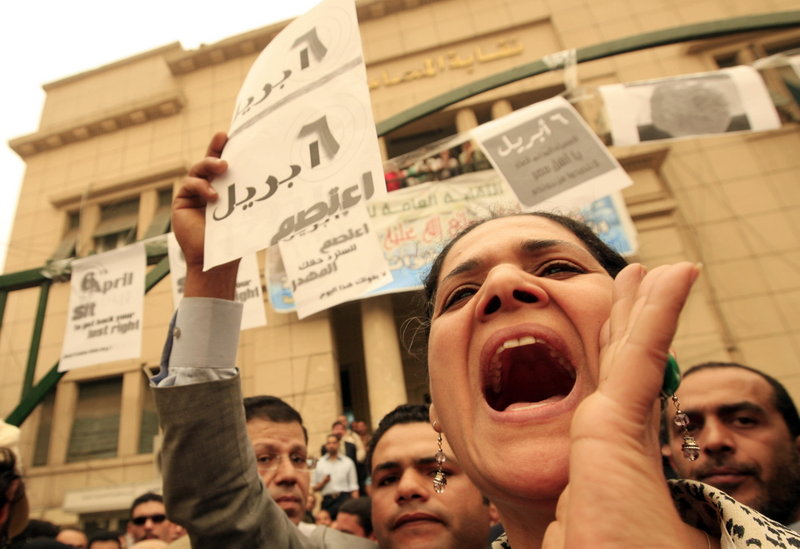In looking at the likely status of the Arab-Israel conflict or diplomatic process during 2007, a key factor is the dramatic change taking place in Arab politics. On a strategic level, there is the rise of a new alliance of Hezbollah, Iran, Syria and Hamas. On the ideological front, this bloc is accompanied by a new worldview, which can be called “national Islamism. Until recently, the key battle within Arab politics was that between Arab nationalism and Islamism, with the former in power and the latter furnishing the main opposition movements. Liberal democratic trends were a distant third. Yet national Islamism is presenting itself as a synthesis between the two main warring sides, in theory able to mobilize the Arab masses. Briefly, national Islamism simultaneously bids to replace and incorporate nationalism. The idea is that Islam is such a vital part of the Arab nation that the two cannot be separated. The best way to defend the nation, runs the argument, is to accept an Islamist leadership. Most obviously, Hamas seeks to lead the Palestinians and Hezbollah to take over Lebanon–the latter demanding that all other political forces accept its rule as the most patriotic force, despite its close ties with Iran and Syria. This new approach very much suits the interests of Syria and Iran. For Syria, national Islamism lets it downplay the fact that the regime is dominated by a minority community, while winning support from the country’s Sunni majority. For Iran, this doctrine makes it possible to leap over the Sunni-Shiite and Arab-Persian divide. A key element in national Islamism is for all Arabs, and Muslims, to unite in a struggle against Israel, the United States, and the West. National Islamism demands total victory over Israel and rejects a negotiated solution. The summer 2006 Israel-Hezbollah war is claimed as proof that the proper leadership and ideology can defeat and destroy Israel. The combination of the Hezbollah, Iran, Syria and Hamas alliance and national Islamism is responsible for the much harder line in the Arab world generally toward Israel than appeared to be the case a decade ago. Its rise is still another factor bringing the chances for progress on resolving the conflict in 2007 close to zero. Beyond this, however, the picture is more hopeful in one very important respect. The combination of the Hezbollah, Iran, Syria and Hamas alliance and national Islamism poses a major threat to most Arab regimes, especially Egypt, Iraq, Jordan, Saudi Arabia and the majority in Lebanon.
Because of their ambitions, Hezbollah, Iran, Syria and Hamas have gone out of their way to antagonize Arab governments.
To some extent, this is because they are trying to appeal to the Arab masses over the heads of their local rulers. Yet that is very disturbing to less radical Arab states. Objectively, then, most Arab regimes have roughly parallel interests to those of Israel on the regional level. They are especially not thrilled about Iran getting nuclear weapons. This does not mean they will move closer to Israel or accept direct cooperation, but it does indicate they are likely to want to avoid confrontation. Many in the Arab elites would like to see Israel and the United States cut Hezbollah, Iran, Syria and Hamas down to size.
But they are unlikely to do much themselves toward that end. Another interesting factor is how this development plays with the Muslim Brotherhood. The Syrian branch is against it, since the group wants to overthrow the Syrian regime and is angry at the Syrian rulers’ ability to portray themselves as proper Islamists. The Egyptian branch is also suspicious since it is hostile to Shiite Muslims. The Jordanian branch, however, is enthusiastic. Among the Saudis and the jihadists – including Osama bin Laden’s followers – hostility to Shiites makes them opposed to the Hezbollah, Iran, Syria and Hamas alliance. Especially complex is the effect of these developments on Palestinian politics. Hamas won the January 2006 Palestinian elections and has a strong base of support. In many ways, the worldviews of Hamas and the mainstream Fatah are not all that different except on the specific question of the Islamization of society.
Yet institutionally the two groups are serious rivals. Ironically, Fatah would be much more likely to accept national Islamism if it were in control. But the prospect of a permanent shift in power to Hamas shocks and angers Fatah people to the point of violence, if largely due to the battle over power and patronage. This means that the differences between Hamas and Fatah are likely to prove irreconcilable, no matter how many meetings, quickly violated agreements or fast-evaporating truces they have. In short, they will not be able either to unite against Israel or make any agreements with it. And since both groups are trying to prove how militant they are – Palestinian President Mahmoud Abbas has little power even within Fatah – moderation is also not on the agenda. Clearly, we are in a very different world from that of the 1990s. If national Islamism triumphs or even becomes fairly hegemonic, chances for Palestinian-Israeli peace will be set back by a generation; progress toward Arab-Israel negotiated solutions will go into the deep freeze.
The paradox is that the Hezbollah, Iran, Syria and Hamas alliance needs war, while its enemies’ need to appease the alliance while bolstering their own nationalist credentials will inhibit them from making peace.
Barry Rubin is director of the Global Research in International Affairs (Gloria) Center, Interdisciplinary Center, Herzliya. His book, “The Truth About Syria, will be published by Palgrave-MacMillan in April. This commentary first appeared at bitterlemons.org, an online newsletter publishing contending views of the Israeli-Palestinian conflict.

